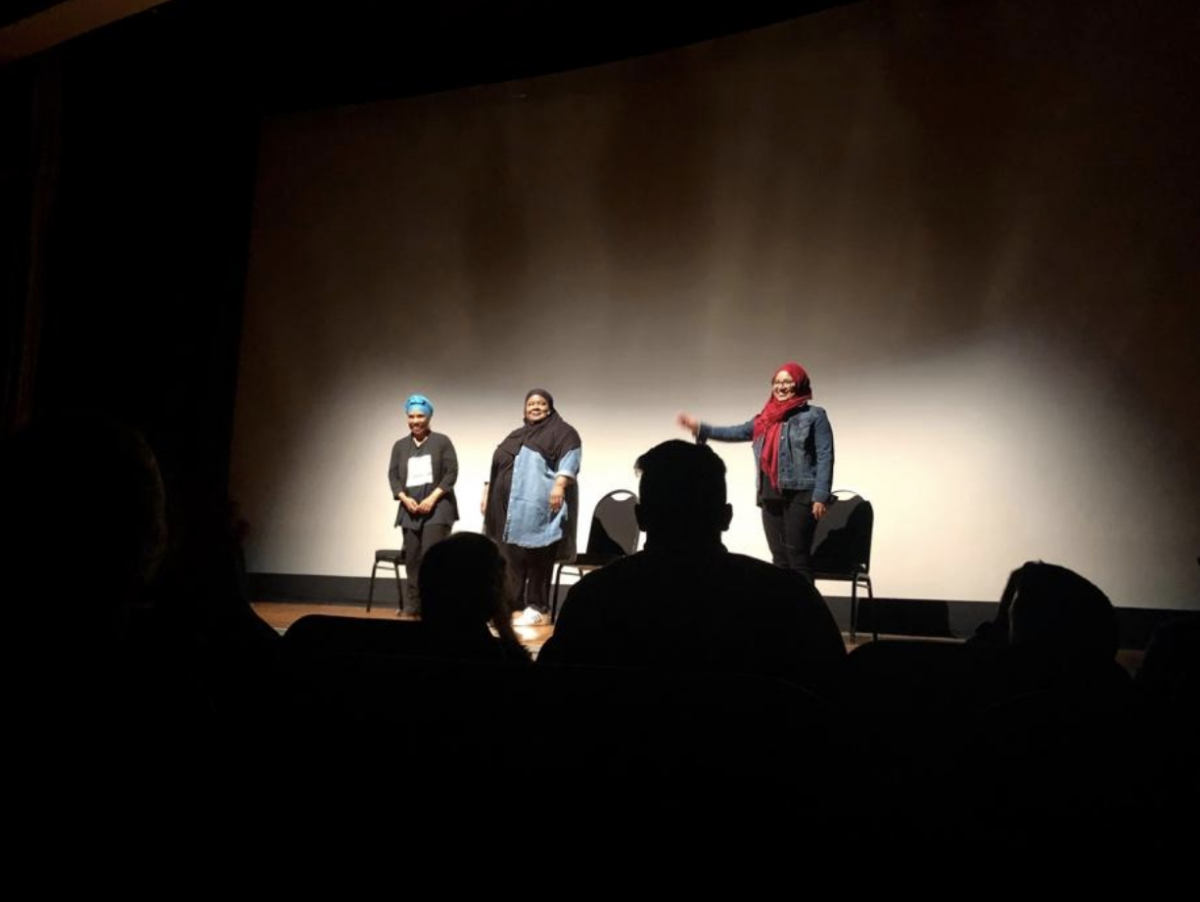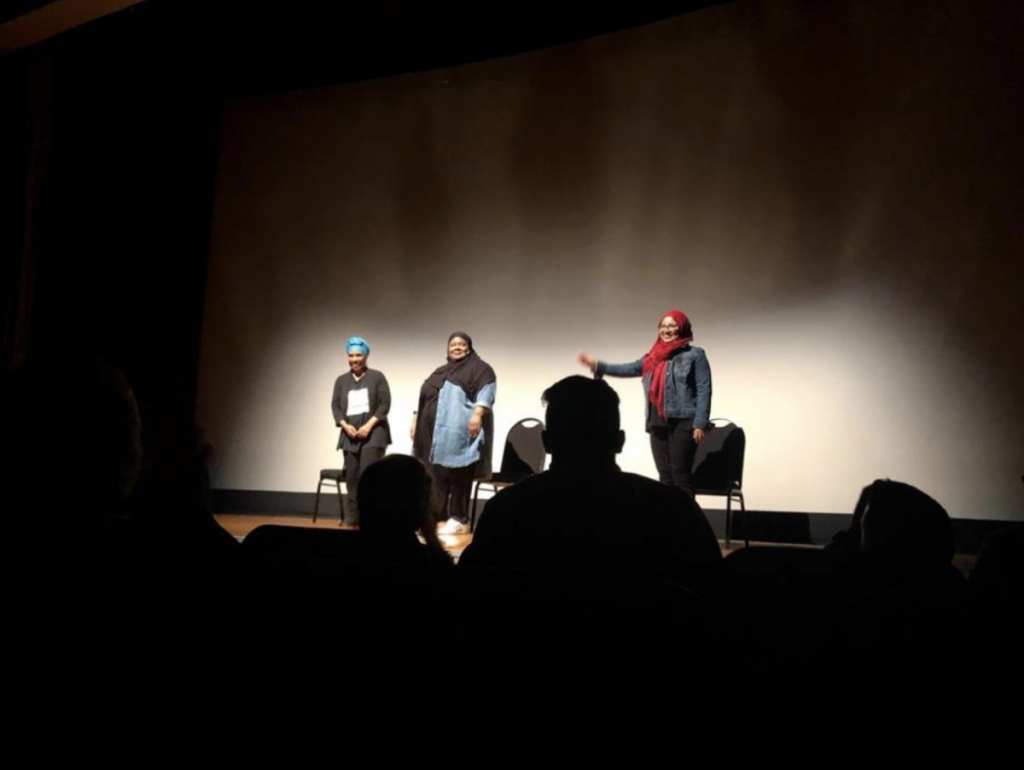
Standing straight up with her feet together and right arm outstretched, Sahar Ullah waved her middle finger up and down as she sang the familiar chant used against Florida State University during football games.
“F you Seminoles, Seminoles F you,” she said.
Turning back to the audience, she continued to recount the story of the first college football game she ever attended. It was her last year as an undergraduate student at the University of Miami and, as the sun began to set, she left the biggest game of the season to find a place to perform the Maghrib prayer. It is the fourth of the five obligatory daily prayers performed by practicing Muslims.
As the audience laughed at the thought of drunk college sports fans, the anecdote was a much needed relief from the stories murder and teen pregnancy that made up the rest of the show.
Joined by Rafiah Jones and Kamilah A. Picket, Ullah brought her highly acclaimed “Hijabi Monologues” to her alma mater for a single night showing on Thursday, Feb. 28 at the Bill Cosford Cinema.
Modeled after Eve Ensler’s “The Vagina Monologues,” which first premiered in 1996 and features women sharing stories sex, relationships and violence, “Hijabi Monologues” allows cast members to share their life experiences as well as those of other Muslim women around the world.
The audience members in the theater experienced an emotional rollercoaster as powerful stories about Hijabi women unfolded before their eyes. There were laughs, tears and silence.
“I’m not just a representation; I’m a human being,” Ullah said in the opening monologue.
After graduating from UM in 2005 with a bachelor of arts degree in religious studies, English literature and political science, Ullah went on to do graduate work at the University of Chicago. Having grown up in South Florida, it was the first time she was away from her community.
She currently holds a three year post-doctorate degree in the department of Middle Eastern, South Asian and African studies at Columbia University, where she is a lecturer.
Many of the stories in the show come from Ullah’s experiences as both a resident of Florida and student at UM; however, though the internationally travelled show has been shown in universities as close as Florida International University, it had never been performed on campus.
“It didn’t feel great hearing that a lot of these stories were from campus, but I like the idea that the stories that Sahar experienced at UM are hopefully making a difference,” said Akki Gunda, vice president of the Council of International Students and Organizations.
COISO helped the department of international student and scholar services organize and promote this showing of “Hijabi Monologues.” Their volunteers arrived long before the doors opened, helping distribute programs and directing guests to their seats.
“We were super pleased when we were approached with something new and wanted to serve as a student liaison to help engage more of the community,” said Nimesh Nagururu, the president of COISO.
The show had an audience of over 100 diverse individuals: students, UM faculty and staff, Hijabis and even families with young children. All three cast members also had special guests in the audience, including Ullah’s mother and individuals mentioned in the monologues.

However, Nagururu and Gunda said there is still a lot more that can be done to support the Muslim community and amplify the voices of its members.
“Going forward, we as COISO will work really hard to make a bigger impact on this community and hopefully prevent people from going through the same experiences as Sahar,” Gunda said.
Moderated by Laura Kohn-Wood, dean of the School of Education and Human Development, the post-show talkback session with the cast and writers was a step toward this goal.
“We are trying to develop a culture of belonging and appreciation of the strength that comes from diversity and really have UM represent this inclusive space,” Kohn-Wood said.
Instead of responding to audience questions, the cast instead began by asking questions to encourage reflection. They listened intently as individuals shared their reactions to content in the show.
“We’re not going to be doing an analysis of this entire community, we’re just going to be connecting,” Ullah said.
Senior Margarita Castillo, a Mexican American, said she particularly resonated with the first monologue, which questioned if anyone in the audience had ever felt like an ambassador for their culture.
“I liked how they stood in their truth fearlessly,” she said. “These women were empowered, determined, and rawfully represented themselves, their community, and heritage.”
The cast also had audience members fill out a questionnaire that was placed inside their programs. It is through such tactics and others like story contests as well as open call auditions that Ullah’s original five monologues have evolved into what the show is today.
“Hijabi Monologues” has given Muslim women a chance to speak their truths while encouraging others to reflect on how they respond in certain situations.
The talkback concluded with a single question directed at the audience: What is one positive commitment that you can make to end discrimination and violence?





